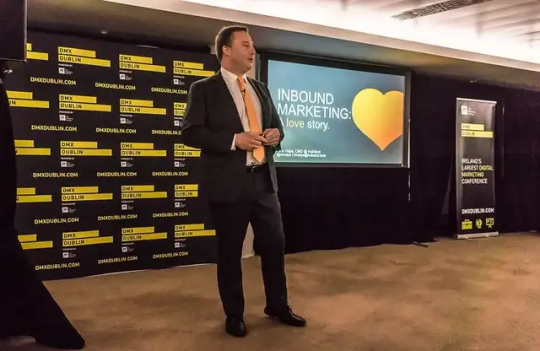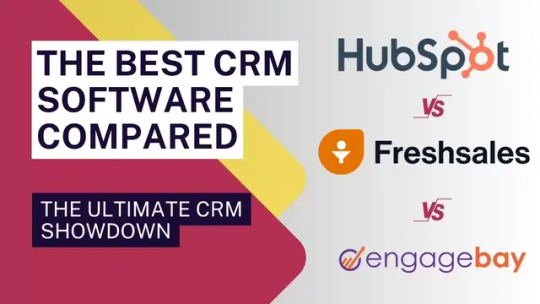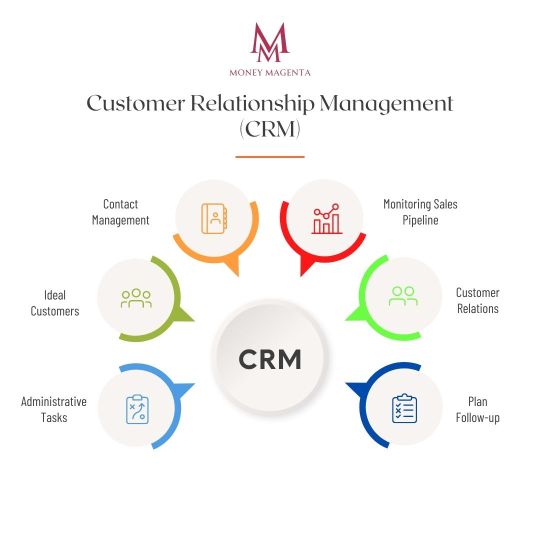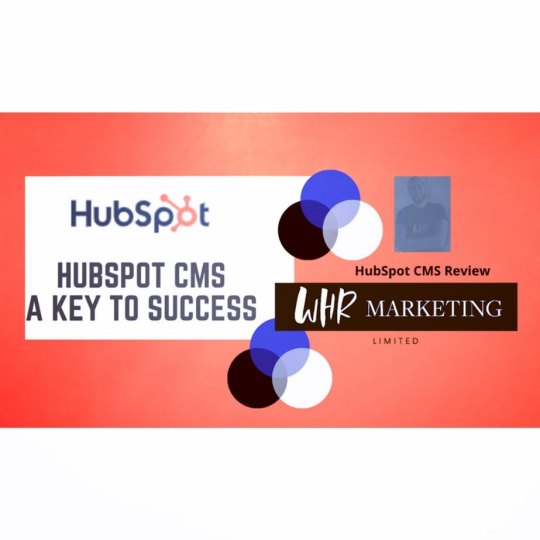#HubSpotCRM
Explore tagged Tumblr posts
Text
Unlock Seamless Workflows with Expert HubSpot Integrations

In today’s fast-paced digital world, businesses rely on seamless processes and integrated systems to stay competitive. HubSpot integrations are essential for connecting your CRM with other tools, enabling unified workflows and optimized operations. At Sol Business, we specialize in delivering top-notch HubSpot integration services tailored to your business needs, helping you maximize the potential of your HubSpot CRM integrations.
As trusted HubSpot integration partners, we ensure that your systems work together flawlessly. Whether you need pre-built integrations or a custom solution, Sol Business is here to help you automate tasks, centralize data, and enhance productivity.
What Are HubSpot Integrations?
HubSpot integrations allow businesses to connect HubSpot’s CRM with other tools and software, such as eCommerce platforms, accounting software, marketing tools, and communication channels. This integration ensures:
Centralized Data: Eliminate data silos by keeping all customer and sales data in one place.
Enhanced Automation: Automate repetitive tasks like lead tracking, customer follow-ups, and billing processes.
Improved Collaboration: Align your sales, marketing, and customer service teams with seamless data flow.
Optimized Decision-Making: Get real-time insights through consolidated analytics.
Scalability: Easily scale your operations as your business grows.
At Sol Business, we ensure that these integrations align perfectly with your goals, enabling smarter workflows and more efficient processes.
Key HubSpot Integration Services by Sol Business
At Sol Business, we offer a variety of HubSpot integration services to suit businesses of all sizes and industries. Here are some of our most popular integrations:
1. HubSpot + Salesforce
Sync your HubSpot CRM with Salesforce to align sales and marketing teams. Seamlessly track leads, customer interactions, and performance across both platforms.
2. HubSpot + Shopify
Connect your HubSpot CRM with Shopify to enhance your eCommerce capabilities. Manage orders, automate abandoned cart emails, and nurture customer relationships with ease.
3. HubSpot + Slack
Integrate HubSpot with Slack to streamline internal communication. Get instant notifications for lead updates, task assignments, and critical milestones in real-time.
4. HubSpot + QuickBooks
Simplify financial management by integrating HubSpot with QuickBooks. Automate invoicing, track payments, and sync sales data effortlessly.
5. Custom HubSpot Integrations
Need something specific? As experienced HubSpot integration partners, Sol Business develops custom API integrations to connect HubSpot with your unique tools and systems.
Why HubSpot Integrations Are Essential for Your Business?
HubSpot is a robust CRM solution, but its true power lies in its ability to connect with other platforms. By leveraging HubSpot CRM integrations, businesses can:
Save Time: Automate repetitive tasks and reduce manual data entry.
Enhance Customer Experiences: Create personalized campaigns and timely follow-ups with centralized customer insights.
Increase ROI: Improve operational efficiency to generate measurable results.
Boost Team Productivity: Keep all teams on the same page with integrated workflows.
With Sol Business’s expertise, you can turn disconnected tools into a well-oiled machine that drives business growth.
Why Choose Sol Business as Your HubSpot Integration Partner?
At Sol Business, we pride ourselves on delivering high-quality HubSpot integration services. Here’s why businesses choose us:
Expertise: We bring years of experience in providing seamless HubSpot integrations tailored to unique business needs.
Custom Solutions: From standard integrations to advanced custom APIs, we create solutions that align with your processes.
Efficiency: Our streamlined implementation ensures minimal downtime and maximum results.
Ongoing Support: We provide post-integration support to keep your systems optimized and running smoothly.
Proven Success: As trusted HubSpot integration partners, we have helped businesses across industries achieve operational excellence.
FAQs About HubSpot Integrations
Q1: What is the benefit of HubSpot integrations? HubSpot integrations connect your CRM with other tools, enabling automation, centralizing data, and improving business efficiency.
Q2: Can HubSpot integrate with my existing tools? Yes, HubSpot supports a wide range of integrations, including Salesforce, Shopify, Slack, QuickBooks, and custom APIs.
Q3: How can Sol Business help with HubSpot integrations? Sol Business provides tailored HubSpot integration services, including custom API development and ongoing support.
Q4: How long does a HubSpot integration take? The timeline varies depending on the complexity of the integration. Sol Business ensures a smooth and timely implementation.
Q5: Can I get ongoing support after integration? Absolutely! Sol Business provides continuous support to keep your systems optimized for long-term success.
Q6: Are custom integrations available? Yes, Sol Business specializes in custom HubSpot CRM integrations to meet unique business requirements.
Streamline Your Business with Sol Business HubSpot Integrations
Unlock the full power of your CRM with seamless HubSpot integrations from Sol Business. Whether you need to align your sales and marketing teams, automate workflows, or improve customer engagement, our expert HubSpot integration services ensure your tools work in perfect harmony.
As experienced HubSpot integration partners, we focus on delivering solutions that drive efficiency, growth, and measurable results. Ready to take your business to the next level? Visit Sol Business HubSpot Integrations to learn more and get started today!
0 notes
Text
Best CRM Software for Small Business of 2024

The success of a small business may be greatly impacted by selecting the appropriate CRM software. The top CRM software for small businesses in 2024 will combine usability, functionality, and affordability to meet the particular requirements of small businesses. The best CRM software choices of the year include ones that emphasize simplicity and integration as well as those that are comprehensive and feature-rich, meeting a range of company needs. This article examines the top CRM programs for small companies in 2024, emphasizing each program's advantages and how it might help small businesses develop and operate more effectively.
The Best CRM Software for Small Business of 2024
A small firm may improve customer interactions and operational efficiency by selecting the appropriate CRM (Customer Relationship Management) software. The greatest CRM software for small companies in 2024 will combine cutting-edge functionality with accessibility and usability, all of which are designed to satisfy the demands of expanding firms. Using combined instruments & info, such platforms support entrepreneurs by improving business, simplifying procedures offering excellent service to their clients.
CRM Software : Best For
HubSpot CRM : A Comprehensive Overview
Zoho CRM : Best for teams
Salesforce : Most comprehensive customer relationship management (CRM) platform
Pipedrive : Best for simplicity
Freshsales : Best for lead management
Monday.com : Teams
Insightly : Project management
HubSpot CRM: A Comprehensive Free Option
For free, HubSpot CRM provides a feature-rich platform that is tailored to the various requirements of companies. Without needing a large initial outlay of funds, HubSpot CRM streamlines client management with its user-friendly design and robust features. Essential features like contact management, email monitoring, and sales pipeline management are included in its free edition, which makes it a desirable option for startups, small firms, and even those looking for the finest CRM software for real estate.
Zoho CRM: Affordable and Customizable
It might be difficult to find a CRM system that strikes a balance between extensive functionality and cost in the fast-paced world of small companies. In this aspect, Zoho CRM shines, providing an incredibly flexible platform that can be adjusted to suit a wide range of business requirements without breaking the bank. Its multiple features, including custom dashboards, automation, and integration opportunities, making it one of the best contact center CRM solutions available. These qualities assist businesses in streamlining processes and improving relationships with clients. It offers a reasonable route to greater customer management.
Salesforce Essentials: Power and Simplicity
A sophisticated yet simple-to-use CRM software account, Salesforce Essentials is designed for small organizations who want to take use of the features of a top CRM platform.This combination frees small teams from the complexities of larger CRM systems and allows them to manage customer interactions and sales processes more effectively. Salesforce Essentials is a business technology offering real-time statistics, automated workflows, and simple connection choices all without losing usability.
Pipedrive: Focused on Sales Management
A customer relationship management (CRM) software called Pipedrive was created specifically for sales teams who want to boost output and streamline their business processes. Pipedrive's straightforward sales pipeline management is well-known. With its user-friendly interface, teams can watch and keep an eye on every stage of the sales cycle. Customers can handle leads efficiently, automate tedious tasks, and get relevant data on sales effectiveness because of the platform's emphasis on sales management.
Freshsales: AI-Powered CRM for Small Businesses
Innovative customer relationship management software, Freshsales: AI-Powered CRM for Small Businesses, uses cutting-edge artificial intelligence to improve small business operations. It is among the greatest CRM software options for real estate professionals because to its user-friendly design and powerful features like AI-driven lead scoring and predictive analytics, which enable small firms to enhance customer interaction and sales tactics. Freshsales is a vital asset in today's competitive market since it integrates AI capabilities, which not only simplifies CRM tasks but also delivers a scalable solution adapted to the specific demands of small firms.
Monday.com CRM: Flexibility at Its Best
Monday, CRM offers unparalleled versatility for managing sales processes and client relationships. Using its visual project management method, teams may automate tasks, monitor interactions, and modify workflows to suit their own needs. One of the best contact center CRM solutions available, the platform's connectivity options make it simple to connect with other tools and apps, which boosts efficiency. Whether you run a well-established business or a tiny startup, Monday.com CRM provides the flexibility needed to effectively manage operations and foster business development.
Insightly: CRM and Project Management Combined
The feature-rich platform Insightly seamlessly combines project management capabilities with Customer Relationship Management (CRM). With a single, integrated solution to optimize operations, Insightly is made to meet the demands of small and medium-sized enterprises. Effective client contact is made possible by its CRM software account features, while task tracking, collaboration, and resource allocation are made easier by its project management tools. Organizations can handle their client interactions and project workflows with a single, unified system thanks to Insightly's comprehensive approach
Conclusion
The ideal CRM software for your small business in 2024 will rely on your spending limit and unique requirements. Regardless of your needs—free software like HubSpot, flexible software like Zoho, or a sales-oriented tool like Pipedrive—one of the CRMs on our list can assist you in efficiently managing client interactions and fostering business expansion. Click here.
0 notes
Text
A Comprehensive HubSpot Setup Checklist for Overcoming Initial Complexity

Setting up HubSpot can initially seem daunting due to its extensive features and capabilities. However, by following a structured approach, you can streamline the process and harness the platform’s full potential. This comprehensive guide provides a detailed HubSpot setup checklist to overcome initial complexity and ensure a smooth implementation.
Understanding the Importance of a HubSpot Setup Checklist
Before delving into the specifics of the HubSpot setup checklist, it is essential to understand why such a checklist is crucial. The checklist ensures all necessary steps are followed, reducing errors and maximizing efficiency. Furthermore, it helps in leveraging HubSpot’s extensive features effectively, whether you’re utilizing HubSpot development services or setting up the system yourself.
Initial Preparation
1. Define Your Objectives
Start by clearly defining your objectives. What do you hope to achieve with HubSpot? This step is critical as it will guide the entire setup process. Whether it’s improving marketing automation, enhancing customer relationship management, or optimizing content management, having clear goals will ensure a focused setup process.
2. Gather Your Team
Assembling the right team is crucial. Involving key stakeholders from different departments ensures that the setup process addresses all organizational needs. Additionally, consider hiring a HubSpot web design agency if extensive customization is required.
3. Evaluate HubSpot Nonprofit Pricing
For nonprofits, understanding HubSpot nonprofit pricing is essential. HubSpot offers tailored pricing plans for nonprofits, which can significantly reduce costs. Evaluating these options early on can aid in budget planning and decision-making.
Core Setup Process
4. Account and Portal Setup
Begin by setting up your HubSpot account and portal. This involves creating your HubSpot account, configuring basic settings, and ensuring your account is properly set up to accommodate your organization’s needs.
5. Conduct a HubSpot Portal Audit
A HubSpot portal audit is essential to identify any pre-existing issues and ensure that the portal is optimized for your specific requirements. This audit will highlight areas that need attention and ensure a smooth setup process.
6. CRM Setup and Customization
The next step involves setting up and customizing the CRM. HubSpot’s CRM is highly flexible and can be tailored to meet your specific requirements. Customizing contact properties, setting up pipelines, and configuring deal stages are crucial steps in this process.
7. Integrate Existing Tools
Integrating your existing tools with HubSpot is vital for seamless operation. Whether it’s your email service provider, social media platforms, or other marketing tools, ensure that all necessary integrations are set up and functioning correctly.
Setting Up the CMS
8. Understanding HubSpot CMS Features
Familiarizing yourself with HubSpot CMS features is crucial for leveraging the platform effectively. HubSpot’s CMS offers a range of features that can significantly enhance your website’s performance and user experience.
9. Determine HubSpot CMS Cost
Understanding the HubSpot CMS cost is essential for budget planning. HubSpot offers various pricing tiers based on the features and capabilities required. Evaluating these options will help in selecting the most suitable plan for your needs.
10. Hire a HubSpot CMS Agency

Advanced Customizations
11. Engage HubSpot Development Services
Utilizing HubSpot development services can significantly enhance your setup process. These services offer specialized expertise in developing and customizing HubSpot solutions to meet your unique requirements.
12. Collaborate with a HubSpot Development Agency
Partnering with a HubSpot development agency can provide additional support and expertise. These agencies offer comprehensive development solutions, ensuring that your HubSpot setup is optimized for performance and efficiency.
13. Design and Development
Engage in extensive design and development to tailor HubSpot to your specific needs. This step involves customizing templates, setting up landing pages, and ensuring that the design aligns with your brand identity.
Final Steps and Implementation
14. HubSpot CRM Implementation
The HubSpot CRM implementation is a critical step in the setup process. This involves configuring all necessary settings, importing data, and ensuring that the CRM is fully operational.
15. Comprehensive Testing
Thorough testing is essential to ensure that all aspects of the setup are functioning correctly. This includes testing integrations, workflows, and automation to identify and rectify any issues.
16. Training and Onboarding
Providing training and onboarding for your team is crucial for successful implementation. Ensure that all team members are familiar with the system and understand how to use it effectively.
17. Launch and Monitor
After completing all setup steps, proceed with the launch. Continuously monitor the system to identify any issues and ensure that everything is functioning as expected.
Evaluating the Benefits of HubSpot CMS
18. Assess the Benefits of HubSpot CMS
Evaluating the benefits of HubSpot CMS is crucial for understanding the value it brings to your organization. HubSpot’s CMS offers a range of benefits, including improved user experience, enhanced SEO, and seamless integration with other tools.
19. Is HubSpot Worth It?
Determining is HubSpot worth it involves evaluating the return on investment. Consider the features, benefits, and overall impact on your organization’s efficiency and effectiveness.
20. Ongoing Support and Optimization
Continuous support and optimization are essential for maintaining an effective HubSpot setup. Engaging with a HubSpot CMS agency or development services can provide ongoing support and ensure that your system remains optimized.
Conclusion
Overcoming the initial complexity of setting up HubSpot requires a structured approach and comprehensive planning. By following this HubSpot setup checklist, you can ensure a smooth and efficient implementation process. Leveraging the expertise of HubSpot development services, HubSpot CMS agencies, and understanding the benefits of HubSpot CMS will significantly enhance your setup experience. Ultimately, this will enable you to maximize the platform’s potential and achieve your organizational goals.
#hubspotcms#hubspot cms#hubspot starter#hubspot agency#hubspotcrm#hubspot#hubspot setup#hubspot onboarding#hubspot agency cincinnati#hubspot service provider
0 notes
Text
TOP & BEST CRM PACKAGES FOR SMALL COMPANIES 2024
In the dynamic landscape of small businesses, Customer Relationship Management (CRM) plays a pivotal role in establishing and nurturing customer relationships. As we step into 2024, the need for efficient CRM packages tailored for small companies has never been more critical. Let's explore the top and best CRM packages designed to meet the unique needs of small businesses.
I. Introduction
A. Definition of CRM
Customer Relationship Management, or CRM, refers to the strategies, technologies, and practices that companies use to analyze and manage customer interactions throughout the customer lifecycle. It aims to improve relationships, streamline processes, and boost profitability.
B. Importance of CRM for Small Companies
Small businesses thrive on strong customer relationships. CRM empowers them by providing tools to understand customer needs, personalize interactions, and foster customer loyalty. In this article, we delve into the key features, cost-effective solutions, user-friendly interfaces, and top CRM packages suitable for small companies in 2024.
II. Key Features to Consider
A. Scalability
One crucial factor for small companies is the scalability of CRM solutions. The chosen CRM package should grow with the business, accommodating an increasing customer base and evolving needs.
B. Customization
The ability to customize CRM according to specific business requirements is paramount. Small companies benefit from tailored solutions that align with their unique processes and goals.
C. Integration Capabilities
Efficient CRM should seamlessly integrate with existing tools and platforms. This ensures a smooth flow of data across the organization and eliminates silos.
III. Cost-Effective CRM Solutions
A. Affordable Options
For small businesses with budget constraints, exploring affordable CRM options is essential. We highlight CRM packages that offer robust features without breaking the bank.
B. Free Trials and Demos
Many CRM providers offer free trials or demos. Small companies can take advantage of these to assess the suitability and functionality of the CRM before making a commitment.
IV. User-Friendly Interfaces
A. Intuitive Design
Small companies, often with limited IT resources, benefit from CRMs with an intuitive design. This ensures ease of use and quick adoption by all team members.
B. Accessibility for Non-Tech Users
Not all employees may be tech-savvy. The ideal CRM package for small companies should cater to users with varying levels of technical expertise.
V. Top CRM Packages
A. Package 1: Salesforce Essentials
1. Features
Highlighting the key features of the first CRM package, showcasing how they address the specific needs of small companies.
2. Pricing
Providing transparent pricing information to help small businesses make informed decisions based on their budget.
3. User Reviews
Including testimonials from small companies that have successfully implemented and benefited from Salesforce Essentials.
B. Package 2: HubSpot CRM
1. Features
Detailed exploration of the features offered by the second CRM package and how they align with the requirements of small businesses.
2. Pricing
Transparent discussion on the pricing structure, helping small companies assess the cost-effectiveness of HubSpot CRM.
3. User Reviews
Showcasing real-world experiences through user reviews, providing insights into the practical application of HubSpot CRM.
C. Package 3: Zoho CRM
1. Features
Highlighting distinctive features of the third CRM package, demonstrating its suitability for small companies.
2. Pricing
Transparently presenting the pricing details, allowing small businesses to compare and choose the best fit for their budget.
3. User Reviews
Sharing success stories and testimonials from small companies that have thrived with Zoho CRM.
VI. Industry-Specific Solutions
A. Tailored CRM for Different Industries
Recognizing the importance of industry-specific CRM solutions and how they can enhance efficiency and customer satisfaction.
B. Success Stories
Showcasing success stories of small companies within specific industries that have benefited from industry-tailored CRM packages.
VII. Integrations with Third-Party Apps
A. Compatibility
Highlighting the importance of CRM solutions that seamlessly integrate with third-party applications, enhancing overall functionality.
B. Enhancing Functionality
Exploring how third-party app integrations can extend the capabilities of CRM, providing additional value to small companies.
VIII. Customer Support and Training
A. Availability
Emphasizing the significance of responsive customer support for small companies utilizing CRM, ensuring timely assistance when needed.
B. Resources for Users
Highlighting available training resources, tutorials, and documentation to empower small businesses in maximizing the benefits of CRM.
IX. Case Studies
A. Small Companies' CRM Success Stories
Presenting real-life case studies of small businesses that have achieved remarkable success through effective CRM implementation using Salesforce Essentials, HubSpot CRM, and Zoho CRM.
B. Real-world Examples
Illustrating how small companies have overcome challenges and achieved growth using CRM, providing inspiration for others.
X. Future Trends in CRM for Small Companies
A. Technological Advancements
Exploring emerging technologies influencing the CRM landscape for small companies and how staying updated can be advantageous.
B. Anticipated Developments
Discussing potential advancements in CRM tailored for small businesses and their potential impact on the industry.
XI. How to Choose the Right CRM
A. Assessing Business Needs
Guiding small companies through the process of identifying their specific CRM requirements based on business goals and operations.
B. Consulting with Team Members
Highlighting the importance of involving key team members in the decision-making process to ensure the chosen CRM aligns with their workflows.
XII. Common Mistakes to Avoid
A. Overlooking Training
Stressing the significance of investing time and resources in proper CRM training to avoid underutilization of features.
B. Ignoring Scalability
Cautioning against choosing CRM solutions that may not scale with the company's growth, potentially leading to the need for frequent migrations.
XIII. Comparison of CRM Packages
A. Side-by-Side Features
Providing a comprehensive comparison of the featured CRM packages, enabling small companies to make an informed decision.
B. Pros and Cons
Highlighting the strengths and weaknesses of each CRM package to assist small businesses in selecting the one that best aligns with their needs.
XIV. Conclusion
A. Recap of Key Points
Summarizing the key considerations and insights discussed throughout the article, reinforcing the importance of CRM for small companies.
B. Importance of Investing in CRM
Reiterating the significance of viewing CRM as an investment rather than an expense, emphasizing long-term benefits for small businesses.
XV. FAQs
A. What is CRM?
Answer: CRM, or Customer Relationship Management, refers to strategies and technologies used by companies to manage and analyze customer interactions throughout the customer lifecycle.
B. Why do small companies need CRM?
Answer: Small companies benefit from CRM by improving customer relationships, streamlining processes, and fostering customer loyalty, crucial for business growth.
C. How can I choose the best CRM for my business?
Answer: Assess your business needs, consider scalability and customization, and involve key team members in the decision-making process.
D. Are there CRM solutions specifically designed for certain industries?
Answer: Yes, many CRM providers offer industry-specific solutions tailored to the unique needs of different business sectors.
E. What are the future trends in CRM for small companies?
Answer: Emerging trends include advancements in technology, increased focus on user-friendly interfaces, and industry-specific CRM solutions.
#CRM#SmallBusiness#BusinessTechnology#CustomerRelationshipManagement#TechSolutions#CRMSoftware#BusinessGrowth#TopCRMPackages#HubSpotCRM#SalesforceEssentials#ZohoCRM#FutureTrendsCRM#TechInnovation
1 note
·
View note
Text
How HubSpot Outgrew MIT to Transform Marketing Forever

In 2006, two marketing enthusiasts, Brian Halligan, and Dharmesh Shah, met at MIT and felt frustrated with traditional marketing methods. They believed that a more human-centered approach was needed to attract and engage customers. Thus, HubSpot was born. Today, it is one of the most successful inbound marketing companies with a mission to help businesses grow. In this blog post, we will delve into the inspiring story of HubSpot, and how it evolved from a startup to a major player in the industry. Join us as we explore the journey of HubSpot and its impact on the world of marketing.
The Early Days: How HubSpot was Founded
Brian Halligan and Dharmesh Shah met at MIT and were both fascinated by the concept of inbound marketing. Inbound marketing is a strategy that involves attracting potential customers through content creation, social media, and search engine optimization. The two recognized a need for a platform that would help companies with inbound marketing, and the idea for HubSpot was born. They started working on the platform in 2005, and by 2006, the first version of the software was launched. The early days of HubSpot were challenging, to say the least. The company struggled to gain traction in the beginning, and they had to get creative to get their name out there. They drove a yellow school bus around Boston, hosting events and conducting seminars to promote HubSpot. Their hard work paid off, and the company started to gain momentum. In 2007, HubSpot had its first big breakthrough, generating $255,000 in revenue. By 2008, they had raised $17 million in funding, and the company was on its way to becoming a major player in the marketing industry. HubSpot's growth continued to accelerate, with revenue reaching $15.6 million by 2010. As HubSpot continued to grow, it introduced new products and services to support its customers. In 2010, they acquired Oneforty, the Twitter app store founded by Laura Fitton. This acquisition helped HubSpot expand its reach and bring on new customers. The same year, HubSpot also introduced new software for personalizing websites for each visitor. This was a major breakthrough, allowing businesses to create a more personalized experience for their customers.
The Inbound Marketing Revolution: The Rise of inbound marketing
In recent years, the shift towards inbound marketing strategies has been nothing short of a revolution in the world of marketing. From content marketing and search engine optimization to social media marketing and email marketing, businesses are utilizing inbound marketing tactics more than ever before. One company that has been at the forefront of this inbound marketing movement is HubSpot.
The Shift Towards Inbound Marketing
Inbound marketing first became popular in the early 2000s, with the emergence of search engines such as Google. As more and more people started to use search engines to find information and products online, businesses quickly realized the importance of appearing at the top of search results pages. This sparked a wave of practices aimed at improving website rankings, such as search engine optimization (SEO), content marketing, and social media marketing, all of which are core elements of inbound marketing. The shift towards inbound marketing has only gained momentum since then, with more businesses realizing the power and effectiveness of this approach. The Importance of HubSpot in Inbound Marketing HubSpot was founded in 2006 and quickly became one of the leading players in inbound marketing solutions. The company’s software platform is designed to streamline the entire inbound marketing process, from creating and publishing content to tracking and analyzing performance. With HubSpot, businesses can create effective inbound marketing campaigns that drive traffic, generate leads, and convert customers. HubSpot’s platform vastly improved the efficiency of inbound marketing, making it easier than ever for even small businesses to join the revolution. HubSpot’s Growth and Success Since its founding, HubSpot has grown rapidly and attracted many high-profile customers, including Airbnb, Yammer, and Shopify. In 2014, HubSpot went public, with its IPO raising $125 million. The company’s success has been largely due to its ability to adapt to the changing needs of the inbound marketing landscape. For example, HubSpot has expanded its platform to include more integrations with other software tools, such as Salesforce and Shopify, making it easy for businesses to connect their inbound marketing efforts with other aspects of their business. The Future of Inbound Marketing The rise of inbound marketing shows no signs of slowing down, with more businesses than ever before utilizing inbound marketing tactics in their marketing strategies. With the increasing importance of digital marketing and the continued growth of e-commerce, inbound marketing will only become more critical for businesses looking to succeed in the online marketplace. As for HubSpot, the company is continuing to innovate and develop new tools to help businesses achieve their inbound marketing goals.
From CRM to Full Marketing Suite: HubSpot's product expansion
The evolution of HubSpot's product offerings began in 2012, when the company introduced its integrated marketing software platform. The platform combined various inbound marketing tools such as social media, blogging, email marketing, and analytics into one easy-to-use platform. The platform's aim was to help businesses attract, convert, close, and delight customers through a comprehensive set of marketing tools. This integration marked the beginning of HubSpot's journey as a full marketing suite service provider. Adding More Products Over time, HubSpot has expanded on the components of its integrated marketing platform, adding new products such as HubSpot Sales and HubSpot Service to complete its CRM suite. These new products enabled businesses to manage their sales processes and track customer service inquiries alongside their marketing efforts, resulting in a more seamless customer experience overall. Automation One of the most significant advances in HubSpot's expansion has been the development of its marketing automation capabilities. Through its Marketing Hub, HubSpot now offers a complete range of marketing automation tools, including everything from lead scoring to automatic email workflows and triggered messages. With these tools, businesses can effectively engage with prospects and nurture them into qualified leads by delivering the right messaging at the right time. Marketing Performance Tools In addition to marketing automation, HubSpot has also expanded their offering to include many powerful tools for analyzing marketing performance. The Analytics Hub parent product allows users to track search engine optimization (SEO), social media engagement, email campaigns, and website performance all through customizable dashboards. This gives businesses a comprehensive view of their marketing efforts and data they can use to optimize future strategies. Operations Hub Finally, HubSpot recently announced the launch of its Operations Hub, which has brought multiple back-office functions onto the platform. The Operations Hub includes functions such as account management, proposal management, and deal pipelines, which help customers align their sales processes with their business models more effectively.
The History
From the start, HubSpot was focused on helping small businesses grow by providing tools and resources that were previously only accessible to bigger organizations. The company's first offering was a software solution that enabled businesses to create and manage their websites. In 2007, HubSpot generated a modest revenue of $255,000. However, determined to achieve success, the co-founders continued to innovate their products and services. By 2010, HubSpot's revenue had reached $15.6 million. The company introduced new software for personalizing web pages for each site visitor and launched an all-in-one marketing platform. This platform consolidated multiple marketing tools into one seamless interface, giving businesses more power and control over their campaigns. The rapid growth of HubSpot had caught the attention of investors, leading to a $32 million funding round which helped finance more acquisitions and expansion. In 2011, HubSpot acquired Oneforty, which was a Twitter app store founded by Laura Fitton. The purchase of Oneforty strengthened the company's social media marketing capabilities. HubSpot then expanded its offerings to include social media tools like monitoring, publishing, and lead generation. This move allowed businesses to monitor conversations around their brand and find new customers across social networks. HubSpot continued to grow rapidly, and by 2012, the company had over 8,000 customers in 56 countries and generated $52.5 million in revenue. HubSpot had even reached the milestone of becoming a public company by 2014, with an IPO that raised over $125 million. Over the years, HubSpot had gradually expanded its services and continued to make customer-centric solutions that put user experience first. The company had developed into a go-to solution for businesses looking to revolutionize their marketing strategies.
Timeline of HubSpot
2006: - HubSpot is founded by Brian Halligan and Dharmesh Shah with the goal of helping businesses grow through inbound marketing. - The company launches its first product, HubSpot Marketing Hub, a platform for managing and optimizing inbound marketing campaigns. 2007: - HubSpot introduces the concept of inbound marketing, emphasizing the creation of valuable content to attract and engage potential customers. - The company raises $5 million in funding and expands its customer base. 2009: - HubSpot launches HubSpot CRM, a free customer relationship management tool designed to integrate with its marketing platform. - The company introduces the concept of "all-in-one marketing software," providing a suite of tools for managing various aspects of inbound marketing. 2011: - HubSpot expands its product offering with the launch of HubSpot Sales, a sales automation and enablement platform. - The company surpasses 5,000 customers and raises an additional $32 million in funding. 2012: - HubSpot opens its European headquarters in Dublin, Ireland, to support its growing international customer base. - The company introduces HubSpot Academy, an online learning platform offering free inbound marketing and sales training courses. 2014: - HubSpot goes public with an initial public offering (IPO) on the New York Stock Exchange under the ticker symbol "HUBS." - The company launches the HubSpot CRM Platform, allowing developers to build integrations and extensions for the HubSpot ecosystem. 2015: - HubSpot introduces the HubSpot Growth Stack, a bundled offering that combines its marketing, sales, and CRM products for comprehensive business growth. - The company expands its product line with the launch of HubSpot Sales Pro, a premium sales toolset. 2017: - HubSpot launches the HubSpot Service Hub, a customer service and support platform, expanding its offering beyond marketing and sales. - The company introduces the HubSpot Flywheel, a customer-centric model that emphasizes the importance of attracting, engaging, and delighting customers throughout their journey. 2018: - HubSpot acquires Motion AI, a chatbot and artificial intelligence platform, to enhance its conversational marketing capabilities. - The company introduces the HubSpot Ventures program, investing in startups and companies that align with its mission and vision. 2019: - HubSpot acquires PieSync, a data synchronization platform, to provide seamless data integration between various business applications. - The company expands its product offering with the launch of HubSpot CMS Hub, a content management system for building and managing websites. 2020: - HubSpot introduces the HubSpot App Marketplace, a centralized hub for discovering and installing integrations and apps from third-party developers. - The company launches Operations Hub, a platform for managing data, automating processes, and integrating systems. 2021: - HubSpot acquires The Hustle, a media company focused on business and tech news, to enhance its content and media capabilities. - The company introduces the HubSpot Investment Fund, investing in customer success and growth strategies for select HubSpot partners. 2022: - HubSpot expands its product offering with the launch of HubSpot Conversations, a unified inbox for managing customer communications across various channels. - The company introduces HubSpot CMS Hub Enterprise, providing advanced features and capabilities for large-scale website management. 2023 (up to the current date): - HubSpot continues to innovate its products and services, focusing on enhancing personalization, automation, and analytics capabilities, as well as expanding its global presence.
Conclusion
HubSpot's story is a testament to the power of determination and innovation. The co-founders' vision of creating customer-centric solutions has brought about a revolution in marketing that has changed the entire industry. HubSpot's all-in-one marketing platform, personalization solutions, and social media tools have empowered businesses of all sizes to grow and reach new audiences. The company has demonstrated the power of inbound marketing and how it can change the game for businesses worldwide. As HubSpot continues to expand and innovate, we can expect even greater things from it in the future. Sources: THX News, Wikipedia & Hubspot. Read the full article
#BrianHalligan#DharmeshShah#HubSpot#HubSpotCRM#HubSpotgrowth#HubSpotSales#HubSpotServiceHub#Inboundmarketing#Marketingautomation#Marketingrevolution
0 notes
Text

🚀 Master HubSpot Service Hub with DemoDazzle! 🚀
Learn to manage support tickets, automate workflows, and prioritize tasks with our latest tutorial. Perfect for beginners and pros!
📺 Watch now: https://youtu.be/zNjdJYG8Zbo
Highlights:
Create & assign support tickets
Use filters for ticket groups
Customize ticket properties
Export ticket info
Like, comment, and subscribe for more tutorials!
🔗 Link: https://www.youtube.com/@DemoDazzle
🔗 Visit now: www.demodazzle.com
#HubSpot #DemoDazzle #SupportTicketManagement #CustomerService #ServiceHub #TechTutorials #BusinessGrowth #CustomerExperience #SaaS #TicketManagement #HubSpotCRM
0 notes
Photo

(via The Best CRM Software Compared: HubSpot Vs. Freshsales Vs. EngageBay)
🚀 Exploring the World of CRM Software: Your Ultimate Guide! 📊
Are you on the hunt for the perfect CRM software to supercharge your business? Look no further!
🌟 Navigating the sea of options can be overwhelming, but fear not, we've got you covered. Our expert team has dissected and reviewed the top-notch CRM solutions in the market, and we're sharing the cream of the crop. From HubSpot's comprehensive features to Freshsales' AI-driven prowess, and EngageBay's all-in-one solution, this guide has it all! 🌐
Dive into the full article here ➡️ https://moneymagenta.com/best-crm-software-comparison-hubspot-freshsales-engagebay/
Discover how these CRM powerhouses can revolutionize your customer relations, boost productivity, and drive growth.
🚀 Plus, learn about their unique pricing strategies and tips to make the most of your investment. Ready to take your business to the next level? Don't miss out on these insights! 💡
#CRMSoftware #BusinessGrowth #ProductivityBoost #CustomerRelations #TechSolutions #HubSpotCRM #FreshsalesCRM #EngageBayCRM #SmartInvestment #BusinessSuccess

0 notes
Video
tumblr
With Miritech, automate your business processes with a custom CRM Solutions that increase profits for your business📲👩💼.
To know more 👉visit 🔗 https://www.miritech.com/ 📞 +1 510-298-5936
#miritech#miriinfotechusa#crmsoftware#crmsolutionscompany#softwaredeveloper#softwaredevelopmentcompany#callnow#freeconsultation#brandbuilder#websitedevelopment#hubspotcrm#salesforcecrm
0 notes
Text
Hubspot crm free Review #digitaldebshreedutta
HubSpot is the perfect solution for businesses seeking powerful, easy-to-use CRM
software, with the lightweight but highly capable free-forever plan making the
platform accessible for smaller or newer businesses. This free plan provides a capable
platform to manage and maintain new leads through a variety of HubSpot's complimentary
CRM, marketing, sales, and customer service tools. These include dashboard reporting,
deal tracking, and pipeline management, all accessed through a simple and easy-to-use
interface.
To know more click here
Watch in bengali https://youtu.be/zGfGPpsMyVk
Watch in english https://youtu.be/iB3PXpc8-MM
#digitaldebshreedutta
#hubspotcrmreview
#hubspotreview
#hubspotreviews
#hubspotforsmallbusiness
#hubspotprosandcons
#hubspotcrmfree
0 notes
Photo

HubSpot CMS Review - What is HubSpot? Why go HubSpot? https://bit.ly/3nY6wpT #hubspot #hubspotcrm #hubspotcms #marketing #sales #hubspotsales #salesemailautomation #salestools #marketingtools https://www.instagram.com/p/CKb8vvHBtD0/?igshid=bbjfr71laepr
#hubspot#hubspotcrm#hubspotcms#marketing#sales#hubspotsales#salesemailautomation#salestools#marketingtools
0 notes
Photo

When it comes to Hubspot specialists, we're the closest thing to Boston! Covering the whole of the Midlands & East Anglia, Secret Source Marketing are dedicated Hubspot Partners. We're currently onboarding, integrating, managing, maintaining, and training potential and existing Hubspot users. Why not book yourself a discovery meeting with our team via the Secret Source Marketing website. #hubspotacademy #hubspotcrm #hubspotlife #hubspotcos #salesenablement #salesdevelopment #salesexcellence #salesandmarketing #salesautomation #automationsolution #crmintegration #crmsoftware #hubspot (at United Kingdom) https://www.instagram.com/p/CGU-yvxCtXd/?igshid=yv7wyo6coao2
#hubspotacademy#hubspotcrm#hubspotlife#hubspotcos#salesenablement#salesdevelopment#salesexcellence#salesandmarketing#salesautomation#automationsolution#crmintegration#crmsoftware#hubspot
0 notes
Text
Hubspot CRM: Inbound Marketing Platform for your business

Are you running a commercial business website? Not getting enough leads and income from it. Well, here is a great solution for all your revenue generation. You can increase the leads, sales force, customer interactions, organize your contacts with the help of one of the great inbound marketing agency i.e Hubspot. Hubspot is a great solution for your online business to generative excessive income. Hubspot comes with free tools and you can upgrade to pro as you use them.
what is HubSpot?
Hubspot is a developer and marketer of the software products for inbound marketing sales. It was founded by Brian in 2006. The Hubspot products and services mainly aimed to deliver content marketing, web analytics, SEO and social media marketing, etc. Tools offered by HubSpot: Hubspot launches 4 tools. They are 1. Hubspot CRM free 2. Marketing Hub 3. Sales Hub and 4. Service Hub To be more specific Hubspot rely on the platform of marketing, sales, customer service and CRM software to help all business to reach their target. 1. Hubspot CRM Free Have you ever think about why you need to pay for CRM when you had the chance of using free Hubspot CRM. Hubspot CRM is 100% free. You can easily organize, track and nurture your leads and customers. You can get everything needed to build a relationship with your customers. With the free HubSpot CRM, you can easily manage your pipeline and speed up your teams forever. With the automated tasks helps the salespeople do more deals and fewer data entry. Interactions are tracked automatically and deals are displayed for total visibility. You can easily sort out the deals and filter them. Hubspot logs each and every activity automatically whether you are on a call, or email or on any meeting. You can easily get through the information of the contact at one place. Hubspot CRM offers free tools to chat with customers in real time. The Hubspot CRM skyrocket your productivity as it syncs every data with your inbox to increase the sales. Features supported by Hubspot CRM are: It does content management and contacts insights. You can do email scheduling, tracking, maintain records and support live chat feature. Pricing of Hubspot CRM(Free): Hubspot CRM helps to build deeper relationships with the contacts and you can enjoy its features for free. It helps for the many starts and growing companies to lay a foundation for their business. It supports unlimited users, free forever and stores all your data. Hubspot CRM offers no free trial, as it is 100% free to use. So simply Sign up here to enjoy the related services of the Hubspot CRM. 2. Marketing Hub Hubspot acts as the all in one inbound marketing software. It supports your recklessly to launch effective marketing campaigns which makes people interested in your business. With the Hubspot inbound marketing software, you can grow your traffic, convert leads and prove ROI. With inbound marketing, you can execute your inbound strategy and prove your ROI. It helps to attract more visitors to your pages, convert more leads, close more deals and delight more customers. Here is what Hubspot marketing comes all together. Build and modify your website without IT. You can make your content appear in front of the right people. You can easily drive more traffic to key landing pages You can convert more visitors into qualified leads. You can turn those leads into customers with little efforts. You can track your customer's records automatically and organize them. Pricing of Marketing Hub: Marketing hub helps to grow more traffic and convert your web visitors. One can run inbound marketing campaigns at scale with automation. It also supports free as well as premium software. It includes 3 plans. They are: 1. Starter plan: 35$/Month Professional plan: 800$/Month Enterprise plan: 3200$/Month You can also enhance your plan with some special add ons as well. In order to enjoy the free version of marketing hub tools and software, you can sign up here. 3. Sales Hub: The sales hub of Hubspot comes with time-saving sales tools you can start using for free. You will be notified when your lead opens your email, track every interaction automatically, organize all the activities from the Hubspot sales software. Initially, you can start for free and upgrade as you grow. With Hubspot sales hub you can uncover more new leads, manage your pipeline, close deals much faster than previous and connect with more leads. With the premium sales hub, you can sell more and work less. With a sales hub, you can enjoy the following things. you can automate outreach without being impersonal. you can create and share the templates for best performance among your teams. You can maintain regular follow up flawlessly. You can land more and track pipeline. Pricing of Sales Hub: With a sales hub, one can easily connect with more leads. It contains complete sales toolkit, advanced automation, AI and custom reporting. Sales hub includes 3 plans. They are: 1. Starter plan:35$/Month 2. Professional Plan: 400$/Month 3. Enterprise Plan: 1200$/Month Sales hub software mainly delivers the targeted leads and to enjoy the free features offered by it sign up by clicking here. 4. Service Hub The Hubspot service hub is the platform where it helps the customers to easily connect to their brands. The service hub tool makes your customers happier and grows your business much faster. The more customer service experience your business gains the more profit margins can be estimated. Service hub comes up with all the tools required to delight the customers. They deliver an organized customer experience which gives complete answers and effective help. By using this platform you can connect with customers with their own terms, improve customer satisfaction and grow your business on a large scale. It also turns your happy customers as loyal promoters of your business. Hubspot growth platform with the above mentioned 4 services functions extraordinary. You can enjoy a free version of the tools and can upgrade to the premium software also. Pricing of Service hub Service hub to make happy customers. It includes 3 pricing plans. Namely, 1. Starter plan: 35$/Month Professional Plan: 400$/Month Enterprise plan: 1200$/Month Service hub with it's highlighted features and software brings many happy customers to your website. So grab the chance to enjoy the free version of the service hub software by clicking here. Hubspot can be integrated with all the apps, tools and software that you use in everyday life. Conclusion: In my sense, Hubspot is regarded as the evergreen inbound marketing platform to boost your sales and grow your business. It helps to extend your business venture with the tools and software provided by it. Each and every software by Hubspot delivers some specific goals for business growth. So irrespective of the business size everyone can use their platform to earn the best and possible output. Read the full article
0 notes
Text
Step-by-Step Guide to Creating an Effective HubSpot Implementation Plan

Implementing HubSpot can significantly enhance your marketing, sales, and customer service processes. This powerful platform integrates various tools and features designed to streamline workflows, improve customer engagement, and drive growth. However, achieving a seamless transition requires a well-thought-out HubSpot Implementation Plan. Without a detailed plan, the process can become overwhelming, leading to inefficiencies and missed opportunities.
This comprehensive guide will walk you through the necessary steps, ensuring a successful implementation from start to finish. Whether you are new to HubSpot or looking to optimize your current setup, this guide will provide valuable insights and actionable strategies. The blog will cover various aspects of the implementation process, including the essential hubspot implementation checklist that will help you stay organized and on track. Additionally, we will explore the critical role of a hubspot implementation specialist in providing expert guidance and support throughout the journey. Finally, we will delve into leveraging hubspot cms features to maximize your content management capabilities and enhance your marketing efforts.
Step 1: Understanding Your Needs
The first step in creating an effective HubSpot Implementation Plan involves understanding your business needs. This phase requires a thorough assessment of your current processes, identifying areas where HubSpot can provide the most value.
Key Considerations:
Evaluate existing marketing, sales, and customer service workflows.
Identify pain points and inefficiencies.
Define specific goals for implementing HubSpot.
Step 2: Engaging a HubSpot Implementation Specialist
A hubspot implementation specialist can provide invaluable expertise during the setup process. Their experience with hubspot crm implementation and other HubSpot tools ensures that your implementation is both efficient and effective.
Benefits of Hiring a Specialist:
Customized implementation strategies tailored to your business.
Expertise in configuring and optimizing HubSpot tools.
Ongoing support and troubleshooting.
Step 3: Developing a HubSpot Implementation Checklist
A detailed hubspot implementation checklist is crucial for a structured and organized setup process. This checklist should cover all aspects of the implementation, from initial setup to final testing.
Essential Items on the Checklist:
Account and user setup.
Integration with existing tools and systems.
Customization of properties and fields.
Data migration and cleanup.
Setting up workflows and automation.
Step 4: Setting Up Your HubSpot Account
The next step in your HubSpot Implementation Plan is setting up your HubSpot account. This involves configuring your account settings, adding users, and establishing user permissions. To ensure nothing is overlooked, it is essential to refer to your hubspot setup checklist during this process.
Key Actions:
Create your HubSpot account and choose the appropriate subscription plan.
Add team members and assign roles.
Configure account settings, including branding and company information.
Step 5: Integrating HubSpot with Existing Systems
Integration is a critical component of a successful HubSpot implementation. Ensuring that HubSpot works seamlessly with your existing systems will streamline your operations and enhance data flow.
Integration Steps:
Identify systems that need integration (e.g., CRM, email, marketing automation).
Use HubSpot’s native integrations or third-party tools.
Test integrations to ensure data accuracy and functionality.

Step 6: Customizing HubSpot for Your Business
Customizing HubSpot to fit your specific business needs is essential for maximizing its potential. This involves tailoring properties, fields, and workflows to align with your processes.
Customization Actions:
Create custom properties and fields to capture relevant data.
Set up workflows and automation to streamline processes.
Customize dashboards and reports to track key metrics.
Step 7: Migrating Data to HubSpot
Data migration is a critical step in the hubspot implementation process. Ensuring that your data is accurately transferred to HubSpot will provide a solid foundation for your operations.
Data Migration Process:
Clean and prepare your data for migration.
Use HubSpot’s data import tools or engage a specialist for complex migrations.
Validate and test the migrated data to ensure accuracy.
Step 8: Leveraging HubSpot CMS Features
HubSpot offers a robust content management system (CMS) that can significantly enhance your marketing efforts. Utilizing hubspot cms features will enable you to create, manage, and optimize your content effectively.
Key CMS Features:
Drag-and-drop editor for easy content creation.
SEO tools to optimize content for search engines.
Personalization features to tailor content for different audience segments.
Step 9: Training Your Team
Training is a vital component of a successful HubSpot implementation. Ensuring that your team is proficient in using HubSpot will maximize the platform’s benefits. Partnering with a b2b hubspot agency can provide specialized training tailored to your business needs, further enhancing your team’s skills and proficiency.
Training Strategies:
Provide comprehensive training sessions for all users.
Utilize HubSpot’s extensive library of training resources and certifications.
Offer ongoing support and advanced training as needed.
Step 10: Monitoring and Optimizing Your Implementation
The final step in your HubSpot Implementation Plan involves continuous monitoring and optimization. Regularly reviewing your setup and making necessary adjustments will ensure long-term success.
Optimization Techniques:
Regularly review and update workflows and automation.
Monitor key metrics and adjust strategies as needed.
Stay updated with new HubSpot features and best practices.
Conclusion
Creating an effective HubSpot Implementation Plan requires careful planning and execution. By following the steps outlined in this guide, you can ensure a smooth and successful implementation. Engaging a b2b hubspot agency or hubspot implementation services can further enhance your implementation process, providing expert guidance and support.
For businesses looking to optimize their HubSpot setup, leveraging the expertise of a hubspot implementation specialist and utilizing the comprehensive hubspot setup checklist will be crucial. Additionally, fully utilizing hubspot cms features will enable your marketing team to create and manage content efficiently, ultimately driving better results for your business. Engaging hubspot implementation services can further enhance the process, providing expert guidance and support to ensure a smooth and successful implementation.
With a well-executed HubSpot implementation, your business will be well-equipped to streamline operations, enhance customer relationships, and achieve your marketing and sales goals.
#HubSpot Implementation Plan#HubSpot#HubSpot CMS#hubspot automation#hubspotcms#hubspot agency#hubspotcrm#HubSpot Agency in Cincinnati#HubSpot Agency in Ohio#Custom CMS Solutions#custom cms development services#custom cms development company
0 notes
Link
Many businesses today are approaching clients through online mode, and CRM helps in proper tracking of each client. Here’s a list of different CRMs in the market, along with their advantages.
#crmintegration#crmsoftware#crmsolutions#crmimplementation#salesforce#salesforcecrm#salesforceconsultant#crmconsultant#hubspotcrm#zohocrm#Freshworkscrm#salesforceconsultants#salesforceintegration#salesforcedeveloper#salesforceconsulting#salesforceservices#CRM
0 notes
Text
How to find and connect with B2B Leads: 2019 Hacks
How to find and connect with B2B Leads: 2019 Hacks
In this Video, you will learn some cool Tricks and Hacks for sourcing potential prospects and leads for your business or agency using some simple lead generation tools and strategies.
Kindly find the links to the applications and Resources used in this Video below:
Linkedin Helper Chrome Extention: CLICK HERE TO INSTALL
Email…
View On WordPress
#b2b#b2b lead generation#crm#customer acquisition#digital marketing#email verification#how to generate leads#how to grow your business#hubspot#hubspotcrm#lead generation#lead generation hacks#linkedin helper#linkedin lead generation#marketing campaign#marketing hacks#marketing strategies#prospecting#sale generation#sales hacks#web scraping leads
0 notes
Photo

It was a pretty dang awesome experience to present on how Hupsot software can help our teams at DigitalMarketer in our processes to save time for focusing on the important stuff like providing value for our customers and closing deals! And now, reporting and projecting will be a breeze. 😎 @digitalmktr not only provides amazing value and opportunity for their followers, customers, and partners but also their employees. I'm so very grateful for amazing opportunities like this project has been. It feels good to grow professionally and serve my co-workers and company at the same time! . . #dmtraining #hubspottraining #hubspotcrm #growing #learning #sharing (at Digital Marketer)
0 notes